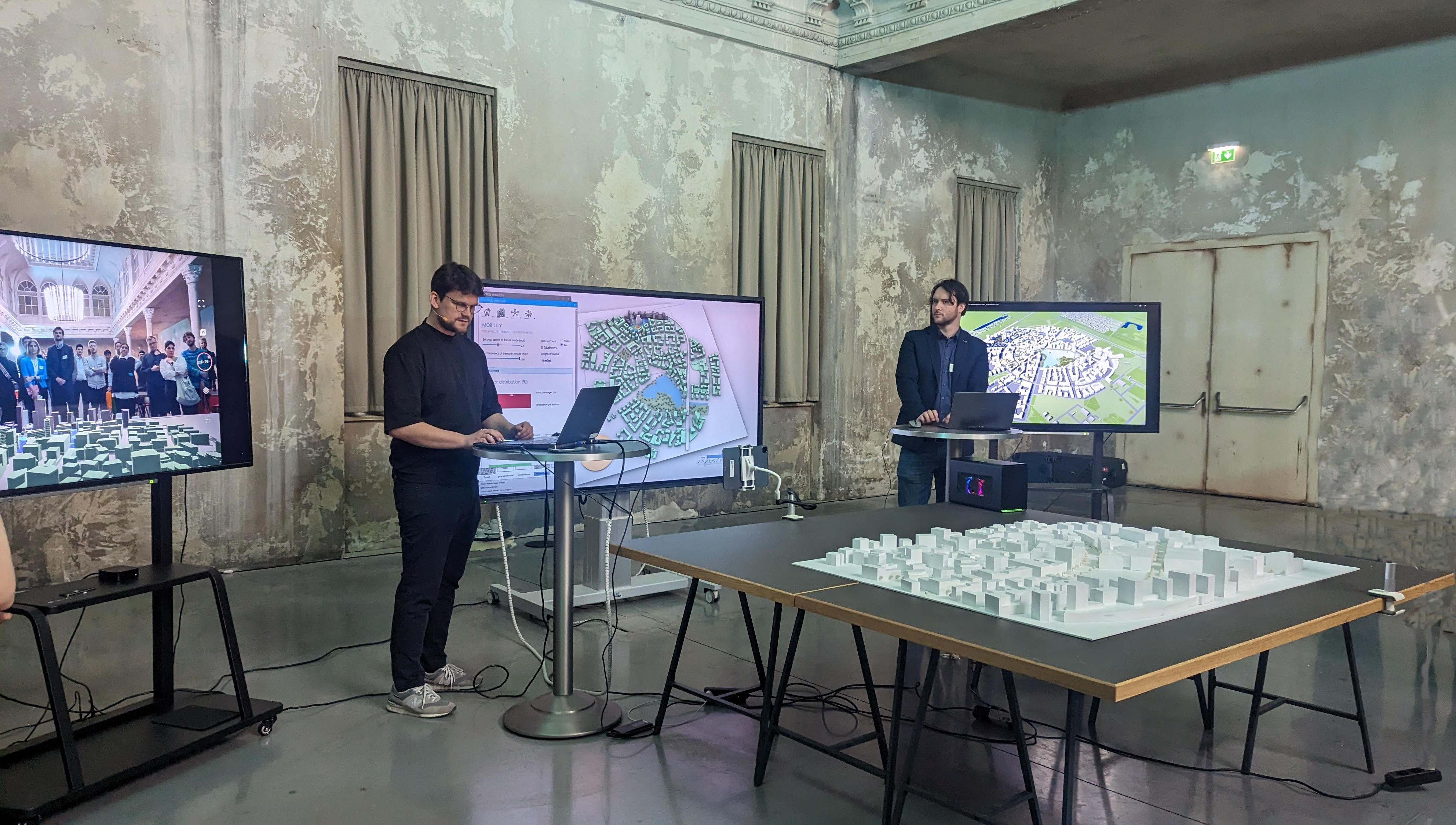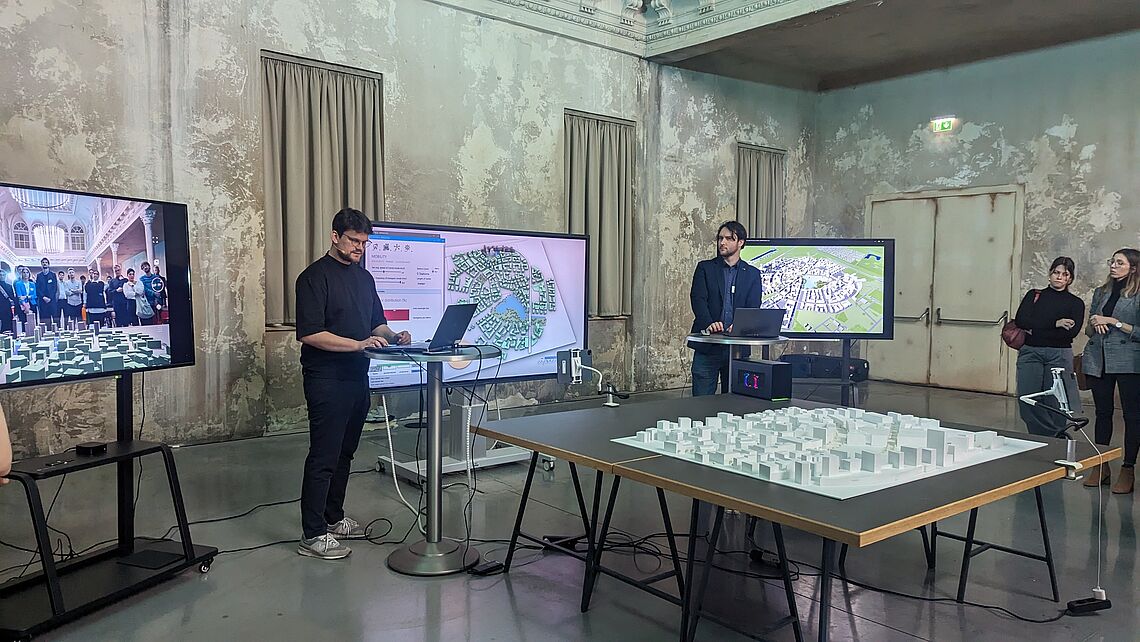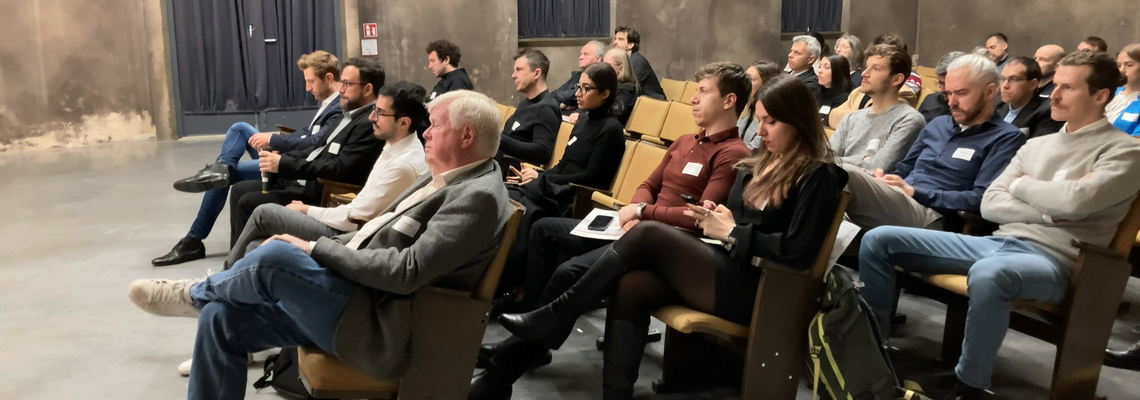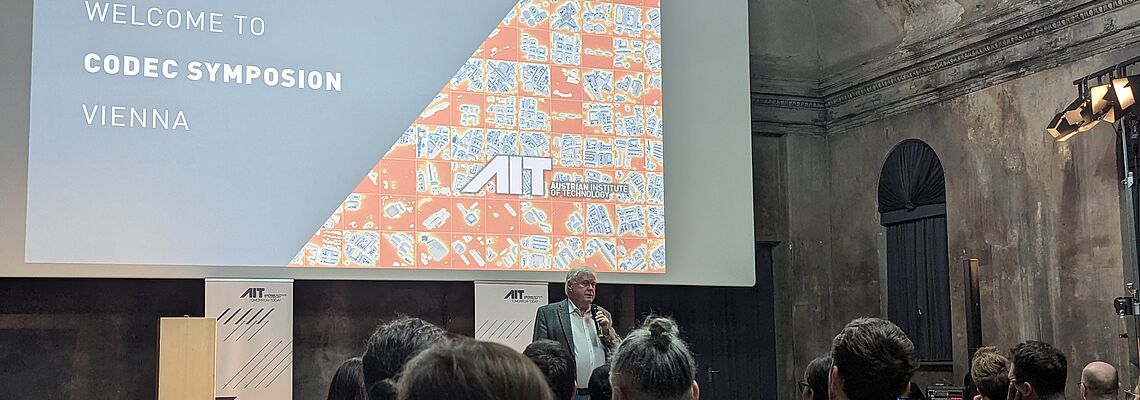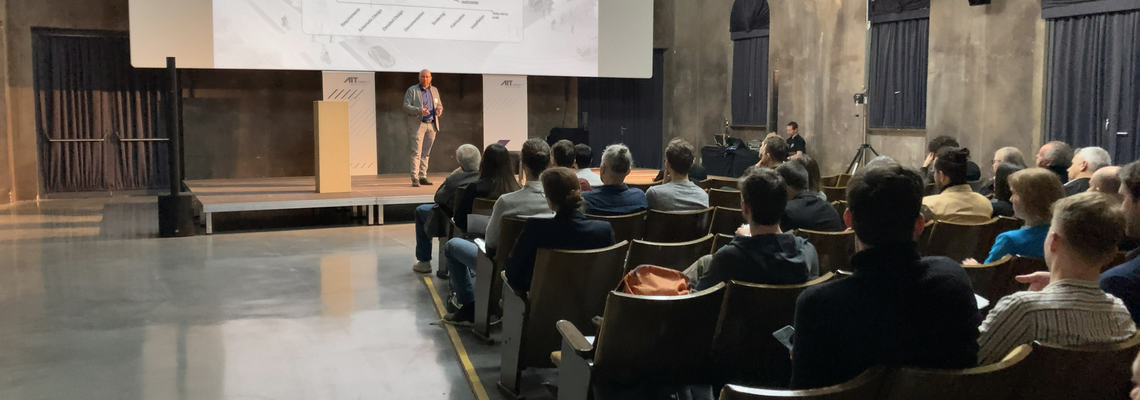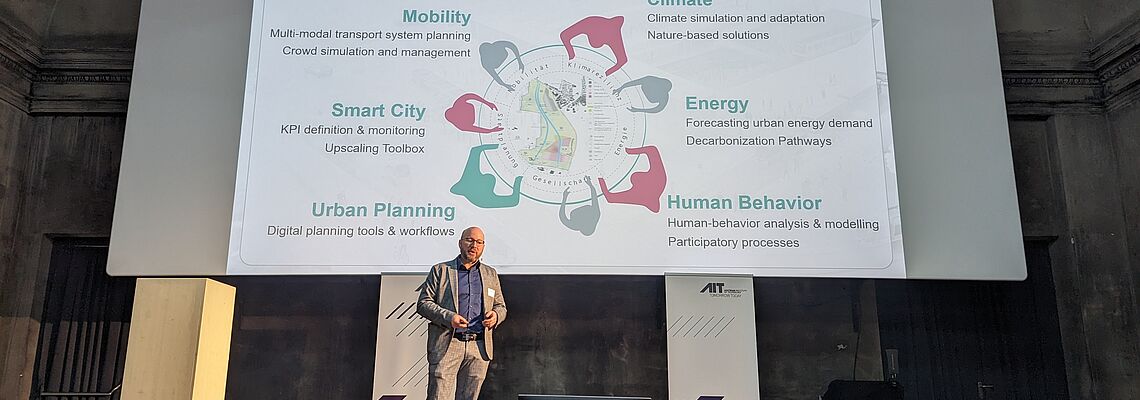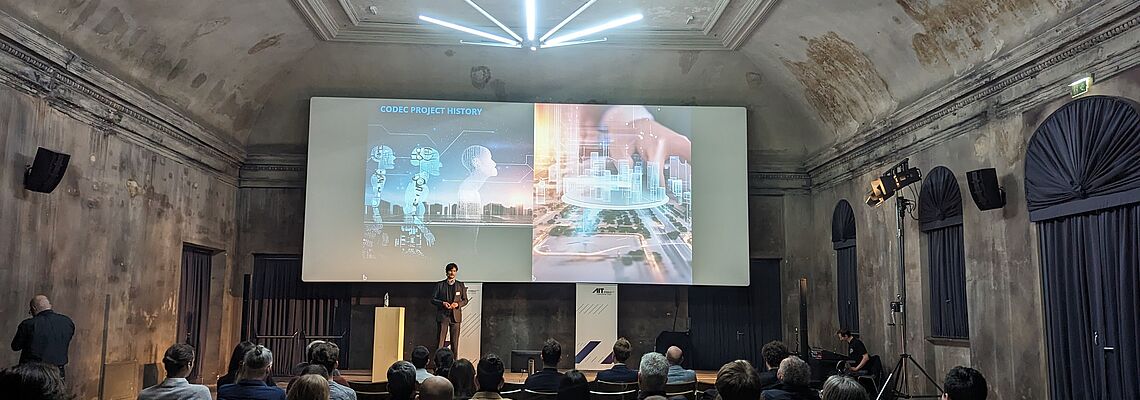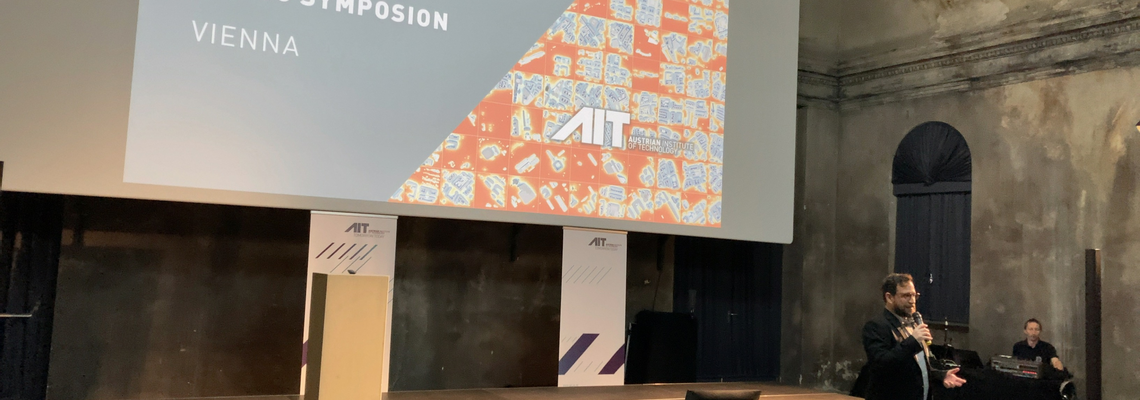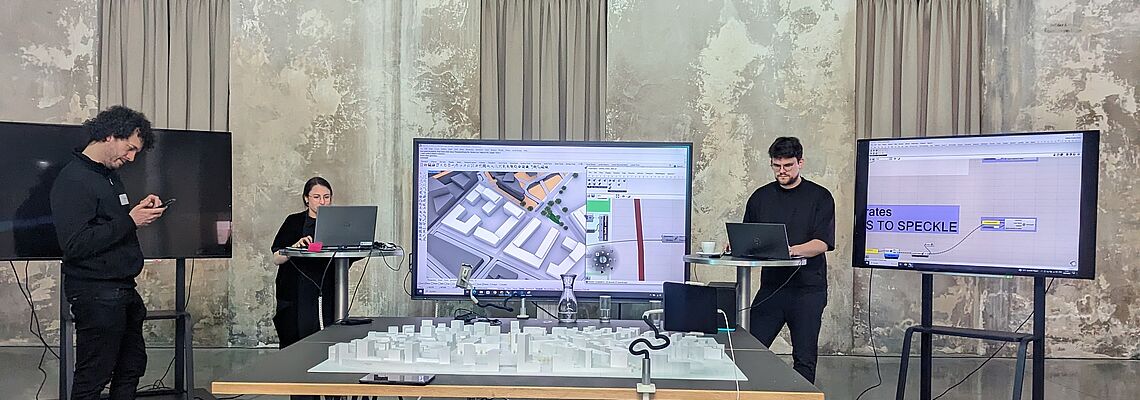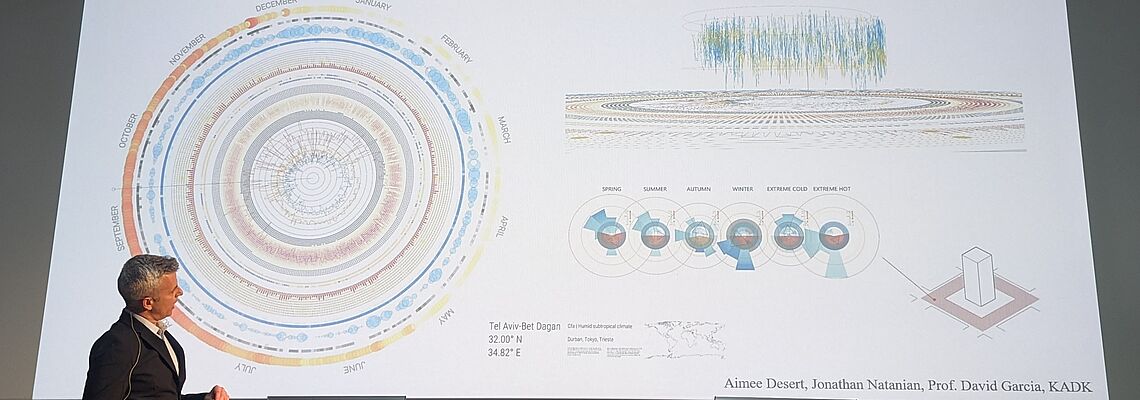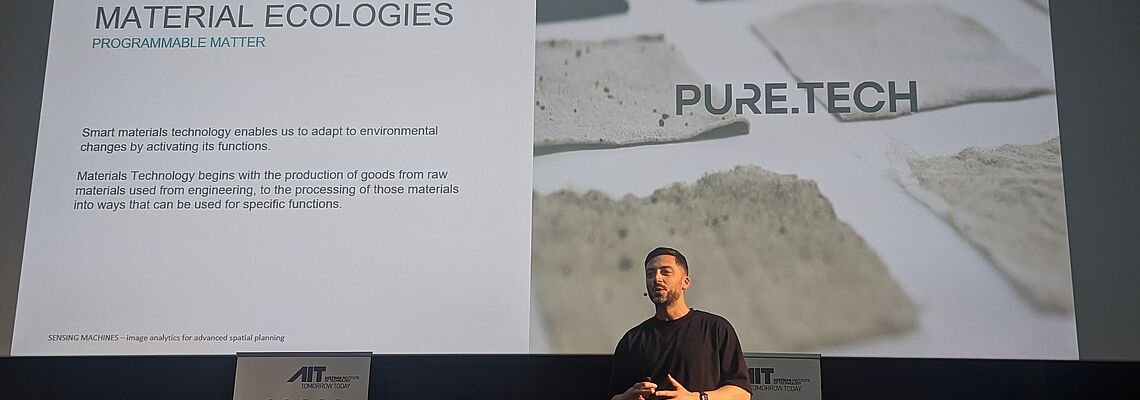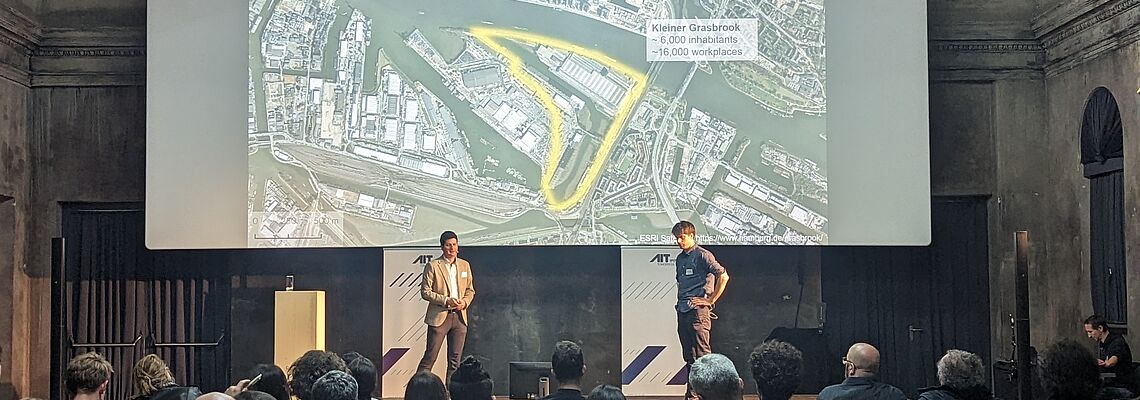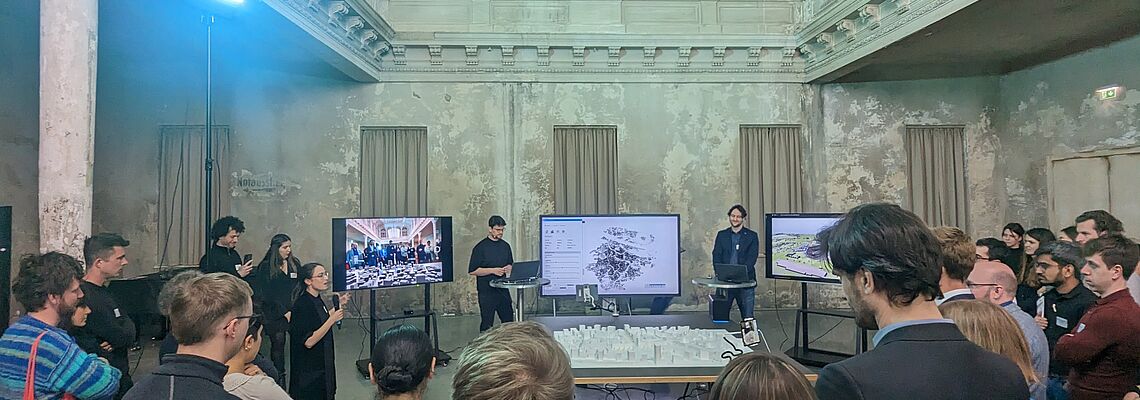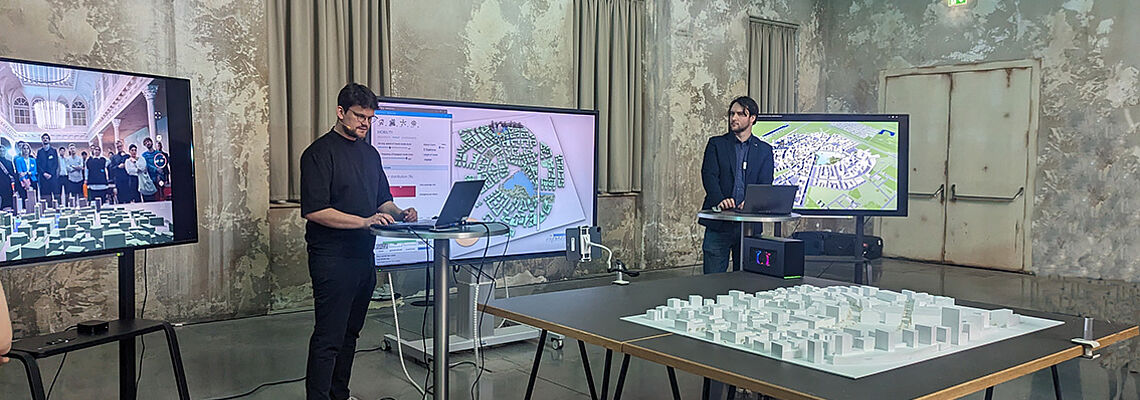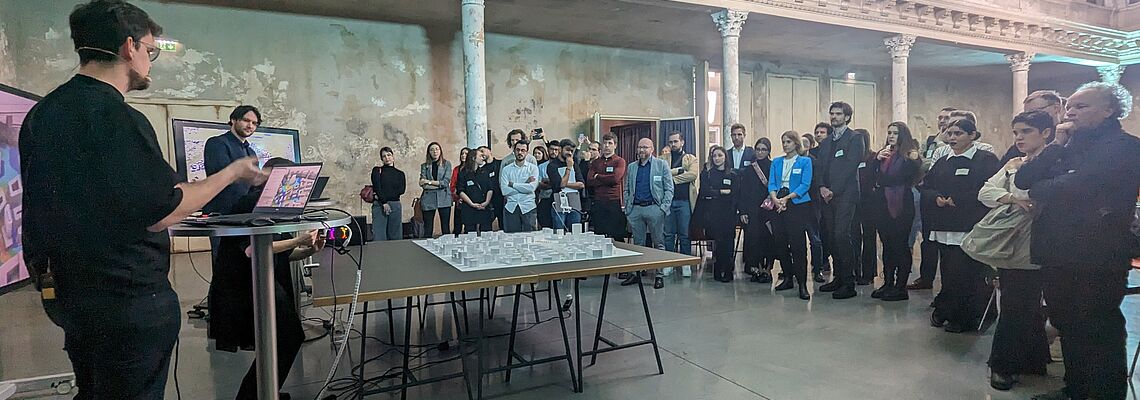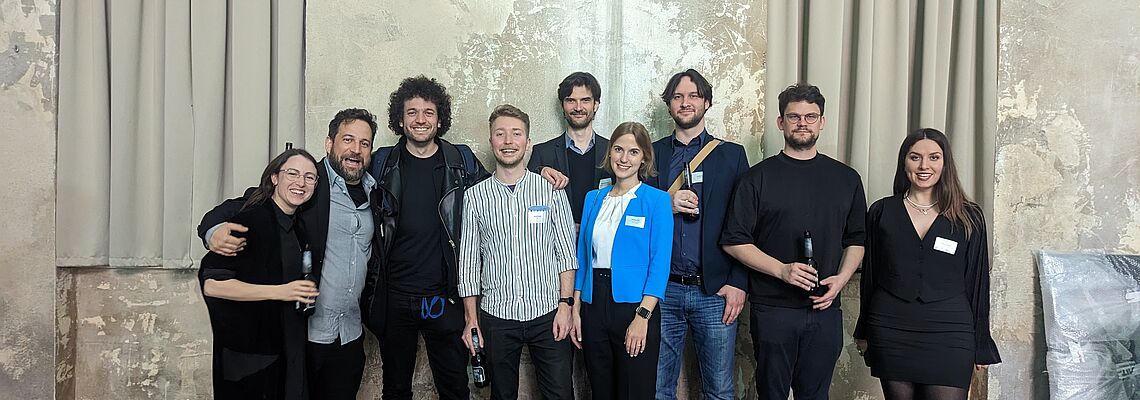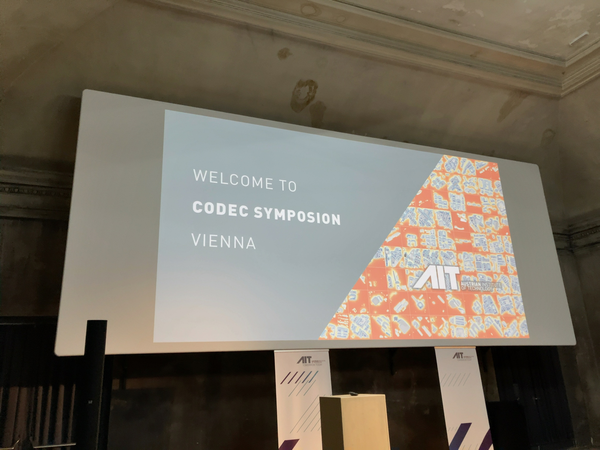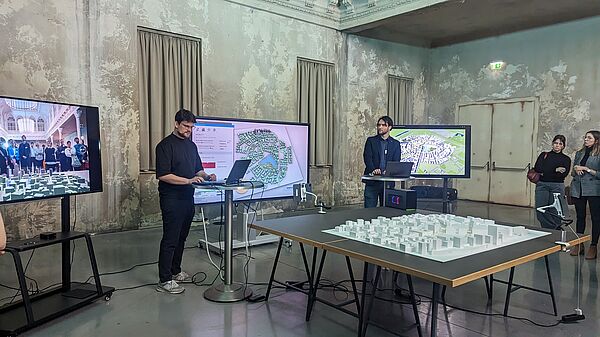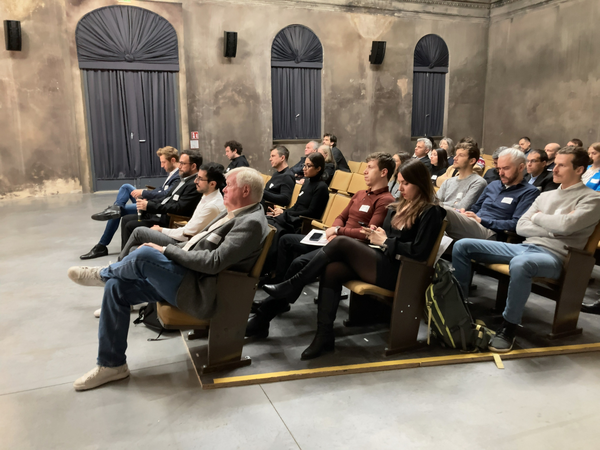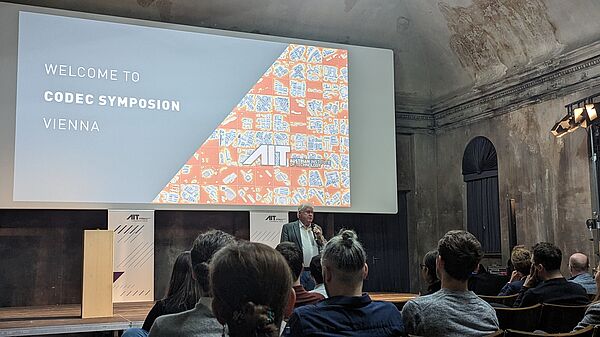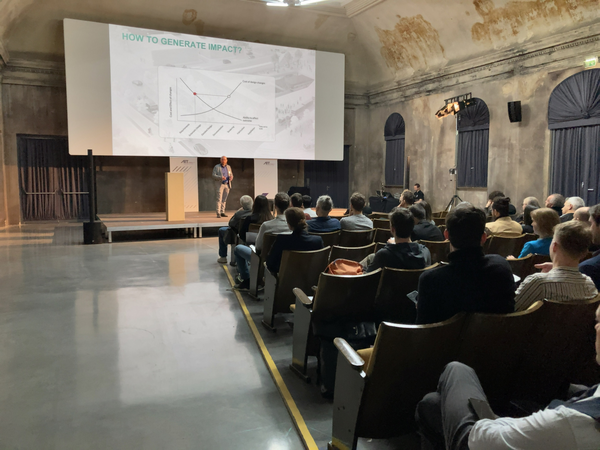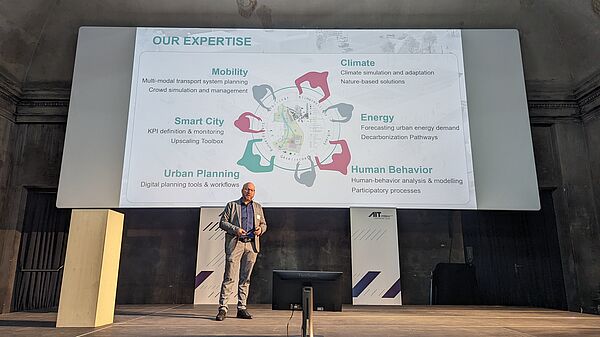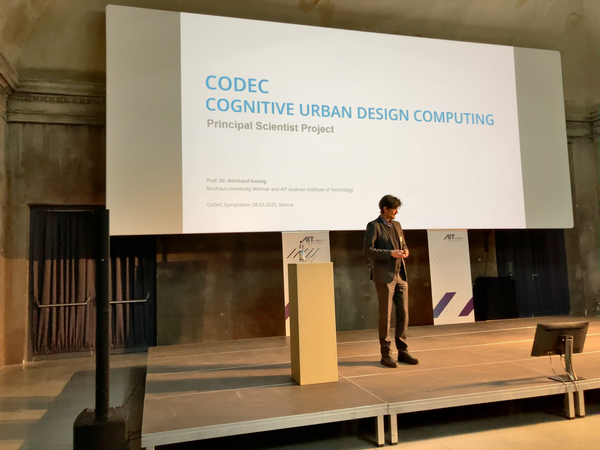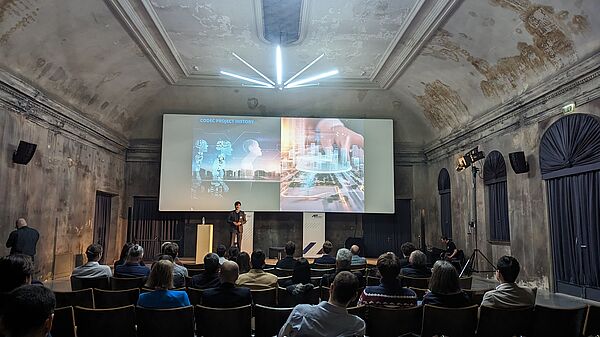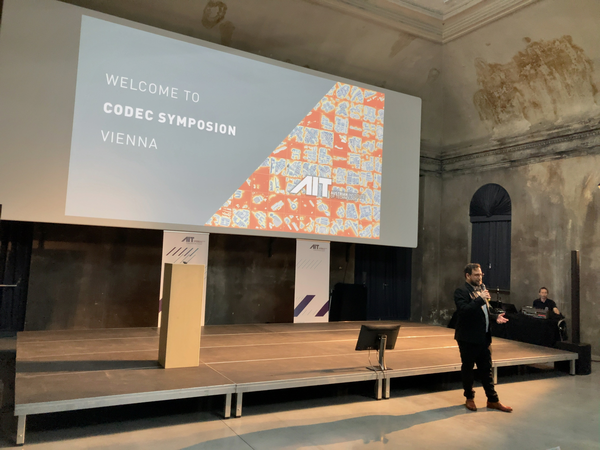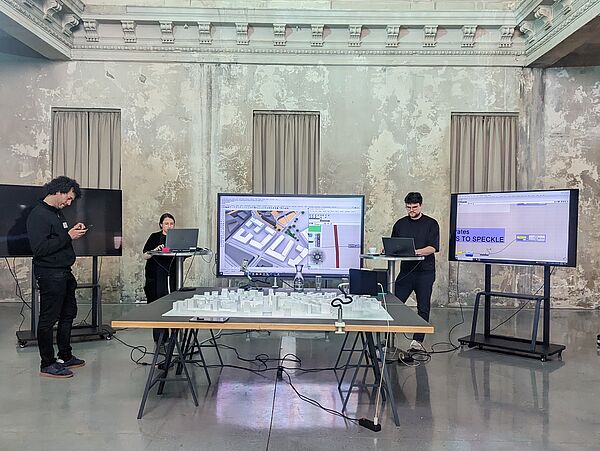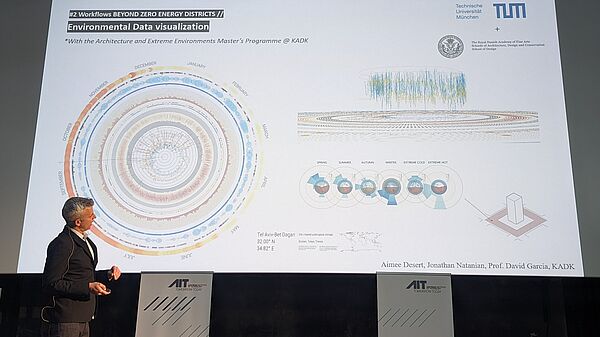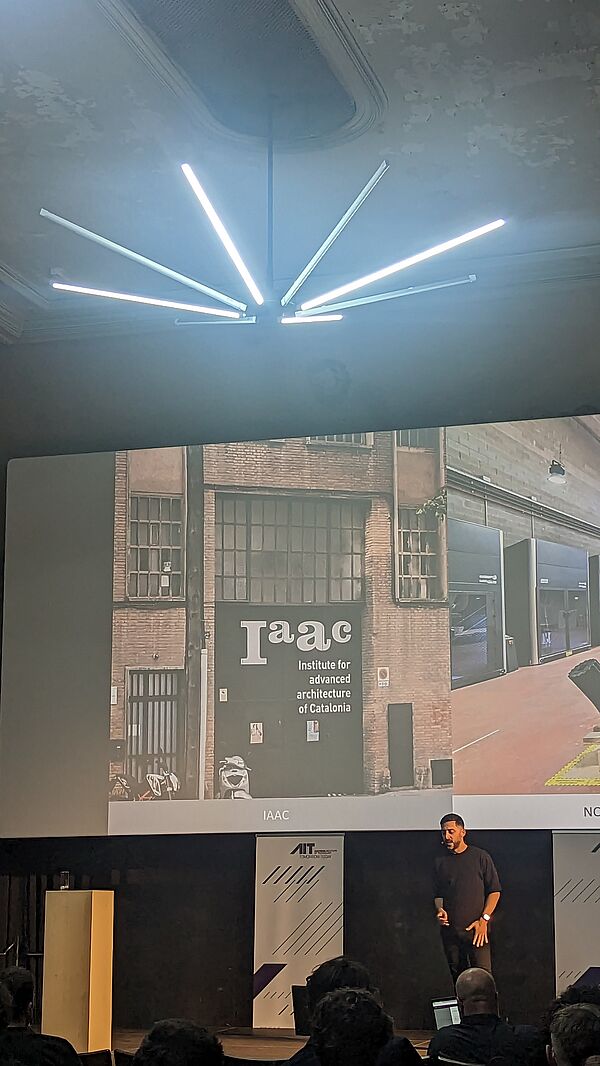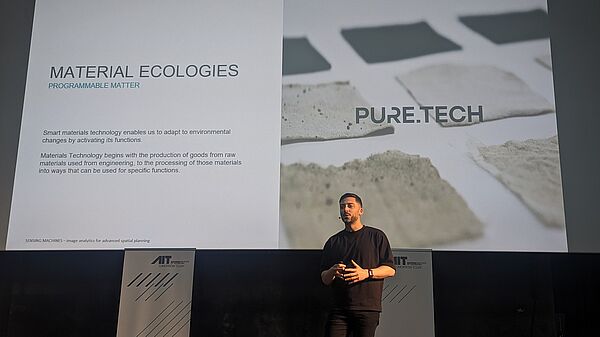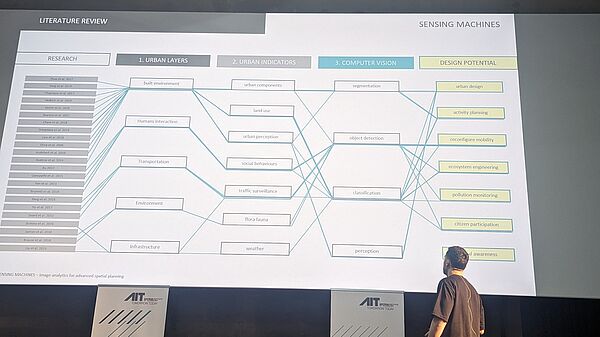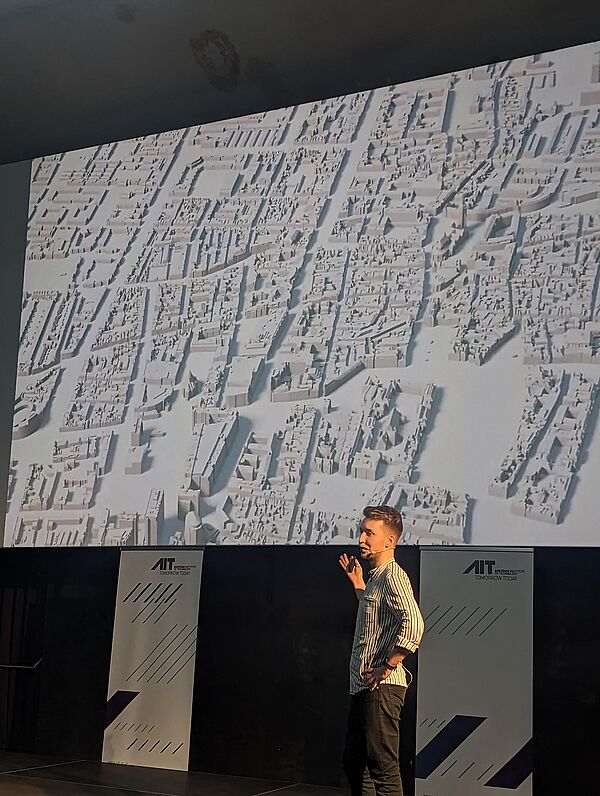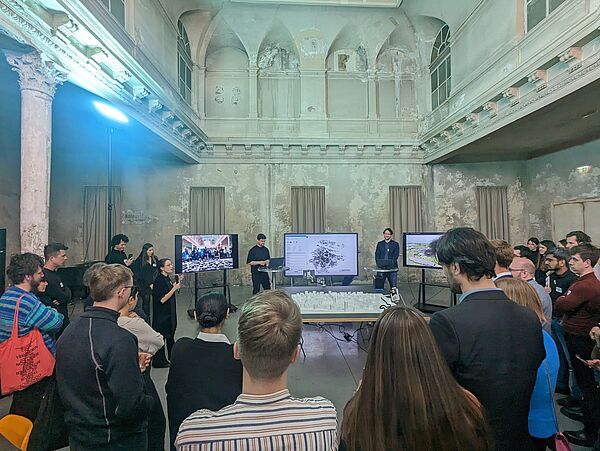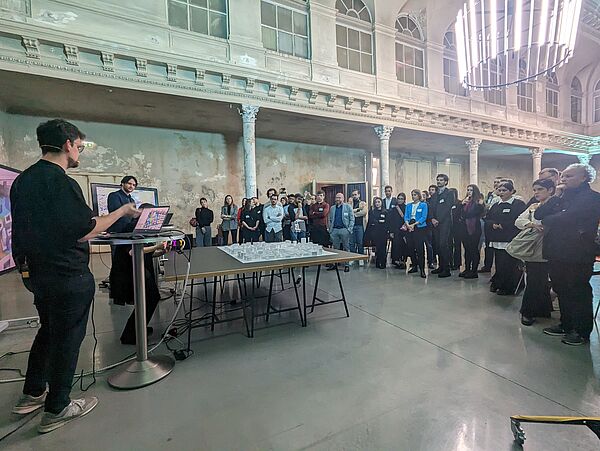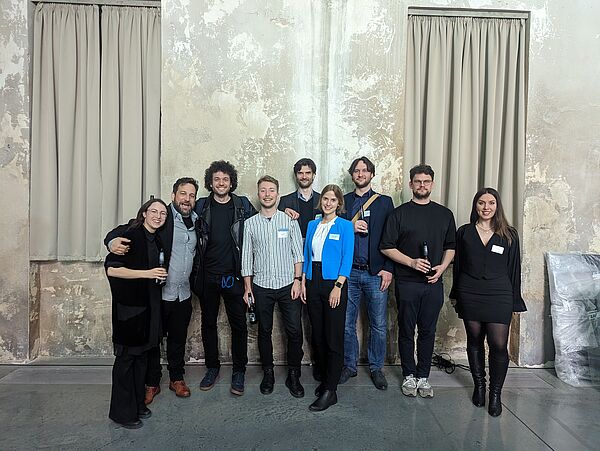As part of the CoDeC Symposium, an interactive demo of the City Intelligence Lab took place © AIT_Chronis. Vienna
- AIT presents the results of the research programme Cognitive Urban Design Computing (CoDeC)
- City Intelligence Lab: International showcase laboratory for the use of digital urban planning methods
On 30 March 2023, around 100 international experts discussed the results of the five-year research project Cognitive Urban Design Computing (CoDeC) at a high-level symposium in Vienna.
The focus of the project was the innovative approach to develop a planning platform with the use of artificial intelligence (AI) and machine learning for urban development. In 2019, the City Intelligence Lab (CIL) was opened as part of the project as an international AI-supported showcase lab and further developed under the approach of co-creative development - co-creating new knowledge. The methods have already been used in research projects for simulations of mobility, energy and climate issues in urban or neighbourhood planning. In addition, the project was scientifically accompanied in the Principal Scientist Programme.
Wolfgang Knoll, Managing Director of the AIT Austrian Institute of Technology: "The cities of the future must not only be equipped with smart technologies, but must also be planned be consistently planned digitally - from the building to the neighbourhood. With the development of digital urban planning methods, the CoDeC programme set new international standards with the City Intelligence Lab. This success was also made possible by the fact that the AIT Principal Scientist Programme involves internationally outstanding research personalities, such as Reinhard König in this case, in the realisation of excellent flagship projects envisaged in our strategy."
Wolfgang Hribernik, Head of Center for Energy, AIT Austrian Institute of Technology: "The innovation achievement of future urban planning will be to use digital technologies to create diverse planning scenarios that offer a wide range of solutions for cities and their inhabitants. The CoDeC programme has already developed new climate modelling applications in recent years to address the increased complexity of urban planning and the challenges of climate change."
Angelos Chronis, Head of City Intelligence Lab, AIT Austrian Institute of Technology: „Our platform can create diverse planning scenarios with the use of artificial intelligence and big data within a very short time. In order to make cities more climate resilient, new methods are needed to evaluate the requirements and challenges in the best possible way. We use machine learning to create microclimate simulations for summer and heat days with and without adaptation measures, to develop different climate models, to create wind simulations, to answer questions, and to develop new scenarios.
Cognitive Urban Design Computing (CoDeC) Programm
The five-year CoDeC programme was a project led by Principal Scientist Reinhard König with the aim of developing an intelligent digital planning method that enables data to be transformed into information and knowledge so that cities can be planned more intelligently to make them more liveable, sustainable and resilient. "The challenge was to use artificial intelligence to combine machine learning approaches with available simulation methods," explains Reinhard König, Principal Scientist and Jun-Professor Bauhaus University Weimar. The main outcomes of the project are integrated planning, the involvement of citizens and stakeholders in the planning process and the development of digital planning tools. It also includes methods for predicting quantitative, qualitative and subjective impacts of urban interventions, even in the absence of explicit models. In addition, the results have enabled a new digital semi-automated planning approach that can facilitate backcasting strategies.
City Intelligence Lab - digital urban planning
The City Intelligence Lab (CIL) has been an integral part of AIT's Digital Resilient Cities expertise since 2019 and is the result of the CoDeC programme. The lab is an interactive platform for holistic consideration of the effects of a wide range of measures in urban and neighbourhood planning on mobility, energy and climate issues. Complex interrelationships of urbanisation and climate change are visualised in real time using artificial intelligence methods and prepared for the co-creative process with stakeholders and citizens in a target group-specific manner. On the one hand, existing designs can be extensively evaluated, and on the other hand, numerous automatically created design approaches can be compared in a performant manner using key performance indicators. This new digital process enriches the traditional urban development process in all planning phases.
Project examples
InFraReD enables holistic mobility planning
Intelligent Framework for Resilient Design (InFraReD) is an artificial intelligence interactive online platform from the City Intelligence Lab that can holistically simulate and plan mobility in urban planning for existing and new buildings. The platform makes it possible to analyse the interplay of building structure, accessibility, source and destination locations in an integrated way in order to run through hundreds of variants for the planning process within a very short time. For example, mobility and accessibility simulations can ensure that a new city district is designed in such a way that citizens can walk in 15 minutes ("15-minute city") without having to use a car at all, but instead walk comfortably in their daily lives,
AI-driven wind flow simulation for digital urban planning
In the City Intelligence Lab, an artificial intelligence-based simulation for wind flows was developed. This makes it possible to determine wind factors in planning within seconds, allowing designs to be analysed and optimised in real time at every planning stage, taking wind factors into account. Wind flows are of great importance in times of extreme weather conditions with regard to dangerous speeds during storms, but also for fine-tuning the microclimatic conditions of a neighbourhood. Thus, in planning, those areas with potentially dangerous wind speeds during storms can be localised and the influence mitigated. In addition, the results can be used to fine-tune the microclimatic conditions of a neighbourhood - whether to cool it down or keep it warm.
Parametric model for Frankfurt
The AIT Center for Energy worked with the renowned Frankfurt architectural firm Albert Speer & Partner to develop Frankfurt's 2021 high-rise development plan, which calls for new and existing high-rise locations to be examined and defined. Not only were the city's silhouette and urban development qualities evaluated, but the suitability of the locations was also considered from a climatic and traffic perspective. The use of parametric models in this project represented a paradigm shift compared to traditional design processes for high-rise developments. For the development of the Frankfurt skyline, several planning variants and scenarios were created within a very short time. This brought enormous added value for the client, the city of Frankfurt, as the high-rise sites could be subjected to a complete performance overview and performance at the very beginning.
AIT Principial Scientist Programme
Principal Scientists play an outstanding role within the science career model at AIT. They are internationally renowned experts with an outstanding scientific career, who influence their research areas’ strategy considerably. They focus on establishing, strengthening and interlinking AIT’s scientific core competencies. Acting as a strong and visible node in international scientific networks, they are initiators of strategic development for research collaborations with universities, other research institutions and companies and contributors to the design of national, international and European R&D.
Press contact AIT:
Mag. Margit Özelt,
Marketing and Communications, Center for Energy, AIT Austrian Institute of Technology
T +43 (0) 664 88390660 E: margit.oezelt(at)ait.ac.at I www.ait.ac.at/energy
Daniel Pepl, MBA, MAS,
Corporate and Marketing Communications, AIT Austrian Institute of Technology
T +43 (0)50550-4040 E: daniel.pepl(at)ait.ac.at I www.ait.ac.at
Programme of the Symposiums: https://www.ait.ac.at/en/codec/symposion



